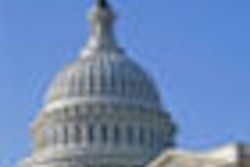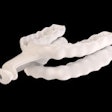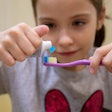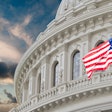The Children’s Dental Health Project (CDHP) has posted on its Web site a "toolbox" with line-by-line analysis of oral health provisions in the bill to overhaul the U.S. healthcare system that passed in the House of Representatives Nov. 7.
The toolbox also includes the CDHP's talking points for oral health advocates and a message urging them to contact members of Congress.
CDHP calls on advocates to:
- Ask that the final legislation include a provision (currently part of all versions of the bill) that would require healthcare plans offered through a new public exchange to include dental benefits for children.
- Ask that an advisory counsel overseeing the exchange include oral health experts. The House bill includes such language, but the two Senate bills (currently being merged into one) don't stipulate that an oral health expert must be included.
- Fight to preserve language in both the House and the Senate Health Education Labor and Pensions (HELP) versions of the legislation that would provide money over five years for training oral health care providers, with an emphasis on programs aimed at the underserved. The House version includes $1.3 billion. CDHP also supports language in the HELP bill that would set up demonstration projects for midlevel providers, such as advanced dental hygienists or dental therapists.
- Ask that new taxes on insurance plans be designed so that they don't reduce dental coverage. "The most efficient strategy to address these threats is to include exemptions to these taxes for dental expenses," the CDHP says.
In addition to these items, CDHP also highlights some oral aspects of the House bill that have not gotten much attention:
- Stand-alone dental insurance plans could be offered in the public exchange through subcontracts with medical insurers.
- Alaskan dental health aide therapists could not extract teeth without first consulting a dentist. It would require the Secretary of Health and Human Services to study the safety, cost effectiveness, and quality of care delivered by the therapists. The bill would also prevent the Indian Health Service from establishing a similar program in any other state.
- The bill would authorize the Indian Health Service to use more funds for dental care.
- Grant programs would fund studies of interdisciplinary programs that could include combining oral health with medical specialties.
- A grant program would give $30 million to promote better health behavior, including oral health.
- A program to reduce infant mortality would include counseling on oral health.
- Dental care providers would be added to national emergency response and homeland security statutes.
- New medical equipment, including dental examination chairs and x-ray equipment, would have to be accessible to people with disabilities.
- New school-based health clinics might include oral health services.



















